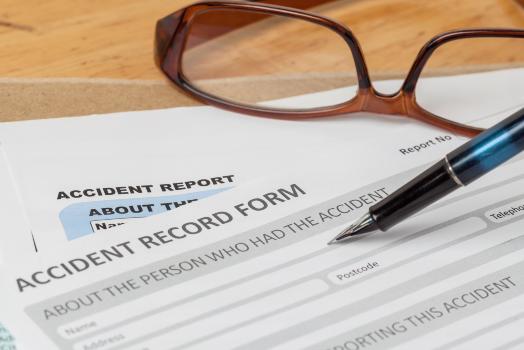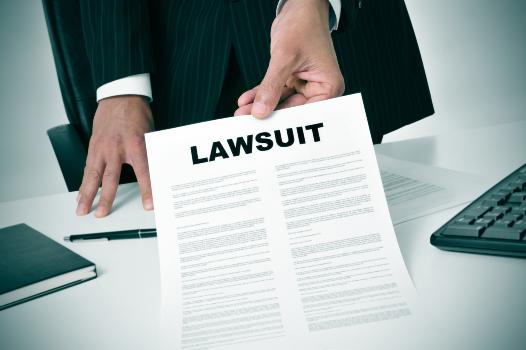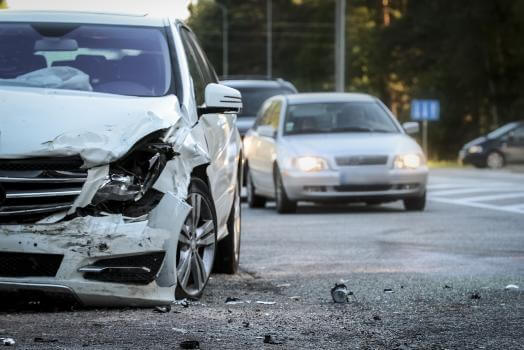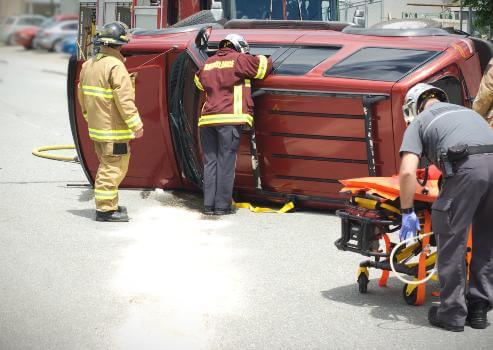Car Accident Psychological Trauma in Ontario, Canada
Understanding Psychological Trauma After a Car Accident in Ontario, Canada
Every day, countless individuals face the unexpected aftermath of a car accident in Ontario. The impact can be far-reaching, extending beyond physical injuries to deeply affect the emotional well-being of those involved.
In the province of Ontario, navigating the intricate pathways of psychological trauma resulting from car accidents can be an overwhelming journey, leaving victims feeling lost and unsure of where to turn.
The resulting psychological trauma can be disturbing for anyone involved in a car mishap, regardless of whether they were the passenger, driver, or pedestrian. Feelings of fear, anxiety, and vulnerability often consume us, making it challenging to regain a sense of normalcy.
The psychological effects can appear in different forms, including recurring nightmares, increased stress levels, or the potential development of post-traumatic stress disorder (PTSD).
We understand the gravity of these experiences, which is why this guide was crafted with your needs in mind. It aims to familiarize people with the complex nature of psychological trauma resulting from car accidents in Ontario and offer guidance on navigating the path to recovery.
This webpage will discuss the psychological trauma after an accident in Ontario, psychological damage due to psychological trauma, how to make a successful claim for such injuries, and how much compensation victims may expect from their claims.
Let’s start.
- What Are the Psychological Effects of Being in a Car Accident in Ontario?
- Coping with Emotional and Psychological Trauma After a Car Accident in Ontario?
- How to Prove Psychological Damage After a Car Accident in Ontario?
- Awareness about Psychological Trauma Following a Car Accident in Ontario?
- The Car Accident Psychological Trauma Claim Process in Ontario?



Car Accident Psychological Trauma in Ontario, Canada
What Are the Psychological Effects of Being in a Car Accident in Ontario, Canada
Car accidents can have far-reaching consequences beyond physical injuries. In Ontario, individuals who have experienced car accidents often face a range of psychological trauma that can significantly impact their mental well-being and quality of life. Understanding these psychological effects is crucial for supporting survivors and promoting effective recovery.
Here are some common psychological trauma effects that individuals may experience after a car accident:
Post-Traumatic Stress Disorder (PTSD)
One of the most common psychological trauma of car accidents is post-traumatic stress disorder (PTSD). Survivors may experience vivid and distressing memories, flashbacks, nightmares, or intrusive thoughts related to the accident. These symptoms can lead to heightened anxiety, emotional distress, and difficulties in daily functioning. Recognizing and addressing PTSD is vital in providing appropriate support and treatment to those affected.
Anxiety and Panic Disorders
Car accidents can trigger or exacerbate anxiety and panic disorders. Individuals may develop an intense fear of driving or being in a car, leading to avoidance behaviours and limited mobility. Anxiety symptoms such as excessive worry, restlessness, irritability, and physical manifestations like a rapid heartbeat or shortness of breath can significantly impact an individual’s ability to resume normal activities and cope with daily life.
Depression and Mood Disorders
The emotional impact of car accidents can also manifest as depression and other mood disorders. Survivors may experience anger and frustration, persistent sadness, loss of interest in activities, hopelessness, or changes in appetite and sleep patterns. Coping with physical injuries, financial burdens, or altered lifestyles can contribute to developing or exacerbating depressive symptoms.
Cognitive Difficulties
Car accidents can cause cognitive impairments such as difficulties with concentration, memory problems, and reduced processing speed. These mental challenges can interfere with work, academic performance, and daily tasks, leading to frustration and a sense of incompetence. Recognizing and addressing these cognitive difficulties is crucial for individuals to regain their pre-accident level of functioning.
Phobias and Specific Fears
Following a car accident, survivors may develop specific phobias or fears related to driving, being a passenger, or certain road conditions. These fears can significantly restrict mobility and social activities, affecting individuals’ overall quality of life. Overcoming these phobias often requires specialized treatment approaches, such as exposure therapy, to gradually regain confidence and independence.
Sleep Disturbances
Sleep disturbances, such as insomnia or nightmares, are common psychological trauma effects experienced after a car accident in Ontario. The trauma and associated anxiety can disrupt normal sleep patterns, leading to difficulties falling asleep, staying asleep, or experiencing restful sleep. Poor sleep quality can further exacerbate other psychological symptoms, making it essential to address sleep disturbances during recovery.
Guilt and Shame
People involved in car accidents may also experience feelings of guilt and shame. They may feel responsible for the accident and blame themselves for any injuries or damage caused. This guilt and shame can lead to self-blame and feelings of worthlessness.
Substance Abuse
Finally, some people may turn to substance abuse to survive the psychological effects of being in a car accident. This can include alcohol or drug abuse, which can cause various physical, mental, and social problems.
Being involved in a car accident in Ontario can have profound psychological effects on individuals. The emotional trauma experienced during such incidents can lead to various consequences. Recognizing and understanding these psychological effects is essential for providing appropriate support, interventions, and resources to those affected.
If you have gone through a car accident in Ontario and would like to explore your legal rights, feel free to contact a lawyer specializing in personal injury cases without delay.



Psychological Trauma After a Car Accident in Ontario, Canada
Coping with Emotional and Psychological Trauma After a Car Accident in Ontario, Canada
The aftermath of car accidents can cause severe physical harm and damage to property. Still, the emotional and mental distress that ensues is frequently disregarded.
In Ontario, individuals who have experienced car accidents may face a long and challenging journey toward recovery. This aims to highlight the importance of addressing and coping with the emotional and psychological effects of car accidents in Ontario.
Car accidents can trigger a range of emotional traumas, such as fear, shock, anger, guilt, and sadness. Individuals may also experience symptoms of psychological trauma, including post-traumatic stress disorder (PTSD), anxiety, depression, and panic disorders. We have already discussed them in detail. Acknowledging and understanding these effects is crucial to begin the healing process.
Recovering from emotional and psychological trauma after a car accident requires support from various sources. This can include seeking assistance from mental health professionals, such as therapists or counsellors, who can provide the necessary tools and strategies to cope with trauma. Additionally, reaching out to support groups or connecting with soul mates and family members who can offer understanding and empathy can be invaluable during the healing process.
Individuals coping with emotional and psychological trauma may experience various symptoms that impact their daily lives. After a car accident, people may experience things like remembering the accident suddenly, having bad dreams, trouble sleeping, feeling easily annoyed, struggling to focus, and avoiding things that point out the accident. It’s important to notice and deal with these symptoms so they don’t become long-lasting and negatively affect the person’s life.
Various coping strategies can help individuals manage emotional and psychological trauma after a car accident. These can include practicing relaxation techniques, such as deep breathing or meditation, engaging in physical exercise to release tension, maintaining a healthy lifestyle, and participating in activities that bring joy and relaxation.
Additionally, therapy modalities like cognitive-behavioural therapy (CBT) or eye movement desensitization and reprocessing (EMDR) can aid in processing traumatic memories and building resilience.
In Ontario, dealing with the aftermath of a car accident can involve complex legal and insurance procedures. This additional stress can exacerbate emotional and psychological trauma.
Seeking guidance from legal professionals and understanding the available insurance coverage can alleviate some of the burdens, allowing individuals to focus on their emotional healing and recovery. If you want to discuss your compensation case thoroughly, we recommend contacting our lawyer, who can provide detailed guidance.
By understanding the impact, utilizing coping strategies, and accessing the necessary resources, individuals can navigate the path to healing and regain control over their emotional well-being.



Psychological Damage After a Car Accident in Ontario, Canada
How to Prove Psychological Damage After a Car Accident in Ontario, Canada
Regarding car accidents, the focus is often on physical injuries and property damage. However, the psychological impact of such incidents should not be underestimated. In Ontario, individuals who have suffered psychological harm due to a car accident may face challenges in proving the extent of their trauma.
This aims to explain the process of establishing and proving psychological damage after a car accident in Ontario.
Recognizing Psychological Damage
The psychological damage from a car accident can manifest in various ways, including PTSD, anxiety, depression, and other mental health conditions. Understanding the signs and symptoms of psychological damage is important to prove its existence.
Seeking Professional Help for Documentation
Discussing with a mental health professional, such as a psychologist or psychiatrist, is crucial in establishing and documenting psychological damage. These professionals can conduct evaluations and provide expert opinions on the individual’s condition, which can serve as valuable evidence in proving the psychological impact of the car accident.
Gathering Medical Records and Documentation
Obtaining comprehensive medical records and documentation related to psychological damage is essential. This includes medical reports, diagnostic assessments, treatment records, and prescribed medications. These documents help establish a clear timeline of the psychological damage and its connection to the car accident.
Keeping a Personal Journal
Maintaining a personal journal can be a powerful tool for documenting a car accident’s emotional and psychological effects. Recording thoughts, feelings, and experiences related to the trauma can provide a firsthand account of the impact on daily life, relationships, and overall well-being. This journal can be used as additional evidence to support the claim of psychological damage.
Witness Statements
Collecting witness statements from individuals who have observed changes in the affected person’s behaviour or mental state can provide valuable support in proving psychological damage. These statements should detail the observed symptoms, such as changes in mood, sleep disturbances, or behavioural issues, and the impact these changes have had on the individual’s life.
Expert Testimony
In some cases, professional testimony may be necessary to establish the link between the car accident and the psychological damage. Qualified professionals, such as forensic psychologists or psychiatrists, can provide expert opinions based on their specialized knowledge and experience. Their testimony can help the court or insurance company understand the severity and causation of the psychological damage.
Keep Records of Medical Bills
Finally, keeping records of your medical bills is crucial. Compensation for psychological damage can include the cost of therapy sessions and other related medical expenses. Keeping track of these consumptions will help your legal team build a compensation case.
Legal Representation
Seeking the support of a personal injury lawyer experienced in handling psychological damage cases is crucial. A skilled lawyer can navigate the legal complexities, gather necessary evidence, and present a strong case to prove the psychological damage and secure appropriate compensation for the individual.
Proving psychological damage in court can be a lengthy and expensive process. Be prepared for a long legal battle and be patient with the process. Our professional lawyer will work with you to secure the compensation you deserve.



Psychological Trauma Car Accident in Ontario, Canada
Awareness about Psychological Trauma Following a Car Accident in Ontario, Canada
Ontario is not immune to the devastating effects of car accidents like any other place. While physical injuries are often immediately apparent, it is important to acknowledge and address the less visible but equally significant impact of psychological trauma.
Raising awareness about psychological trauma in Ontario car accidents is crucial in ensuring survivors receive the necessary support and resources to cope with their emotional and mental well-being.
Car accidents can leave survivors with deep psychological scars that may manifest as anxiety, depression, or other related conditions. By raising awareness, we can shed light on the hidden wounds that often go unnoticed or are misunderstood by society.
Raising awareness helps break the stigma associated with psychological trauma. Educating the public can combat misconceptions and encourage empathy, understanding, and support for individuals experiencing emotional distress after a car accident. Creating a surrounding where survivors feel safe and comfortable seeking help is essential.
By increasing awareness, we can educate individuals about the signs and symptoms of psychological trauma following a car accident. People need to know that emotional distress is a valid response and that seeking professional help is crucial for recovery. Encouraging open dialogue and providing information about available resources can empower survivors to take the necessary steps toward healing.
Raising awareness benefits survivors and their support networks, including family, friends, and healthcare professionals. By understanding the challenges individuals face with psychological trauma, support networks can provide appropriate assistance, offer a listening ear, and facilitate access to mental health services. Empowered support networks contribute significantly to the healing process.
Psychological trauma in Ontario car accidents can also drive changes at a systemic level. By advocating for improved policies, legislation, and support services, we can ensure survivors receive adequate mental health care and the necessary resources to rebuild their lives. This includes initiatives such as trauma-informed care, increased accessibility to counselling services, and integration of mental health into the healthcare system.
Raising awareness about psychological trauma in Ontario car accidents is crucial to supporting survivors and creating a more compassionate and understanding society.
By recognizing the hidden wounds, breaking the stigma, promoting early intervention, empowering support networks, and advocating for systemic changes, we can foster an environment where survivors can heal and rebuild their lives after the dreadful experience of a car accident.



Car Accident Psychological Trauma Claim in Ontario, Canada
The Car Accident Psychological Trauma Claim Process in Ontario, Canada
The first question after getting hit by a car comes to mind is, can I sue for psychological after an accident in Ontario. In Ontario, individuals who have experienced psychological distress due to a car accident or any other type of accident have the right to seek compensation through a legal process.
Car accidents can cause a great deal of psychological trauma to victims in Ontario. Victims may experience symptoms associated with the traumatic event. Furthermore, they may be left with emotional scars that can have long-lasting effects on their day-to-day life.
Certain steps must be followed to get compensation for psychological trauma related to a car accident in Ontario.
First, the victim must prove that their emotional distress was caused by the car accident and not due to other sources. Then they must present evidence of their psychological damages, such as medical bills, therapy expenses, and lost wages.
Determining the average settlement for psychological trauma in Ontario can be challenging, as settlement amounts can vary significantly based on individual circumstances and the case’s specific details.
Ontario has no fixed or predetermined amount for psychological trauma settlements. Each case is evaluated on its own merits, taking into account the unique circumstances of the individual and the accident that caused the trauma.
The compensation a victim can receive for their psychological trauma depends on the severity of their injuries and how much they have suffered. In general, victims of car accidents may be entitled to compensation for both physical and mental suffering, including medical costs, lost wages due to missed work, pain and suffering, loss of enjoyment of life, and emotional distress. The average amount victims can get is $120,000, which depends on the injury’s severity.
In addition, victims of car accidents in Ontario may be entitled to punitive damages compensation if the responsible party exhibited particularly reckless or negligent behaviour. Punitive damages are designed to crack down on the wrongdoer and discourage the same actions from other parties.
It’s crucial to consult with a personal injury lawyer experienced in handling psychological trauma claims to assess the potential value of your case. They will review the specifics of your situation, consider relevant factors, such as medical records, expert opinions, and the impact on your life, and estimate the potential settlement range based on their expertise.
Making a successful claim for psychological trauma related to a car accident in Ontario can be complex, but victims should never give up hope. With the right direction and advice from an experienced lawyer, victims of car accidents may get the compensation they deserve for their emotional suffering.
The amount of compensation that a sufferer is entitled to receive should never be taken lightly. Victims of car accidents should always seek professional advice from an experienced lawyer to determine the potential value of their claim and learn about the legitimate rights and remedies available to them.
*The laws pertaining to automotive injuries are complex and are contsantly evolving. The information on this website was not written by legal professionals and should not be considered legal advise. Please contact a professional personal injury lawyer serving Ontario for the most up to date and accurate information.






